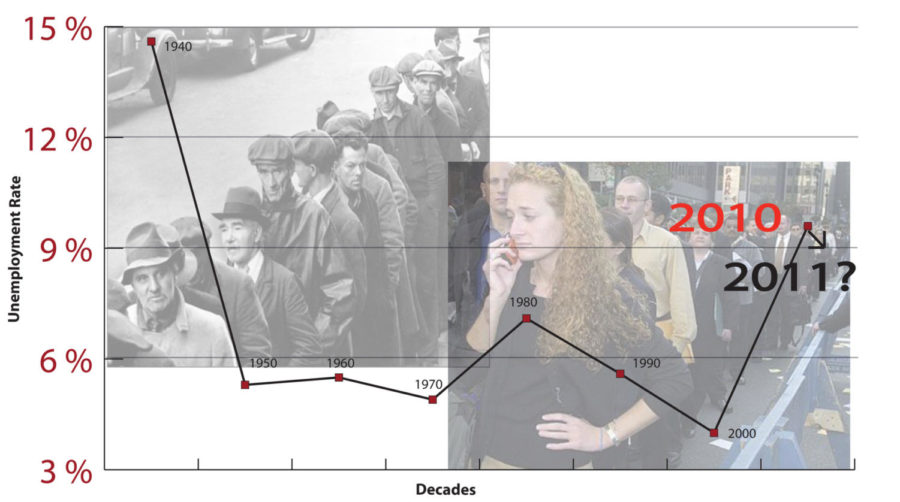College graduates moving home due to high rates of unemployment
Graphic: Dani Harris/Iowa State Daily
Grad Students
May 18, 2011
Many college graduates have found themselves back in a familiar place: their parents’ house.
A recent report by the consulting and research firm Twentysomething Inc. found that 85 percent of students who graduated in 2010 have moved back in with their parents.
While the report has caught the attention of both Time Magazine and The Huffington Post, Iowa State professor of economics Peter Orazem is skeptical of its findings.
“I think it’s bogus,” Orazem said “In this day and age, I think there are a lot of facts that are just thrown out there.”
David Swenson, associate scientist in the Department of Economics, also questioned the report’s validity.
“I don’t know if the 85 percent figure that the survey offers is accurate,” Swenson said. “People have a number and they’re running with it.”
Orazem and Swenson said that college graduates moving back in with their parents was nothing new.
Swenson further said that if the number of students moving back in with their parents did increase, the high rate of unemployment is likely to blame.
“Unemployment has been high since we went into a recession in early 2008 — actually, technically, late 2007,” Swenson said. “As we fell into a recession, [the] unemployment rate started to climb. Companies stopped producing, companies stopped hiring, businesses closed and we had more and more people unemployed.”
According to Bureau of Labor Statistics, the current U.S. unemployment rate is at nine percent.
Swenson said that this percentage is about double what it should normally be. He also explained that the unemployment rate differs for people with differemt amounts of education.
“The unemployment rate is very high for people who don’t have a high school degree and then it’s a little bit lower for people who have some college and a little bit lower for people who have college degrees and much lower for people who have professional degrees,” Swenson said. “So, the probability of being unemployed is very, very much tied to your educational level.”
The current unemployment rate for high school dropouts is about 15 percent and the rate for college graduates is about four percent. Swenson said that although college graduates can secure jobs, the jobs they take may not be the ones they truly desire.
“First of all, many [college graduates] will find work, but they’re not going to find work necessarily where they want to or exactly what they want to, at first,” Swenson said. “Many also may not be using their degrees.”
College graduates must also battle against recently laid-off, experienced workers, Swenson said. He explained that many of these laid-off workers accept lower paying, less prestigious jobs despite their experience.
“College graduates would normally take entry-level jobs, but we have a big group of people that have been unemployed for a long time,” Swenson said. “They’re willing to take entry-level pay to get back into the workforce.”
Orazem explained that young people are also more likely to quit their jobs in order to try to secure different jobs.
“You’re more likely to, in essence, job shop,” Orazem said. “The young have always had higher unemployment than older people.”
Until the economy improves, many recent college graduates may have to find financial solace in their parents’ house. Orazem explained that there is a light at the end of the tunnel.
“The thing with this recession is that it was slow and steady decline,” Orazem said. “Now it’s a slow-and-steady move out of the recession, but at least things are moving in the right direction.”

















